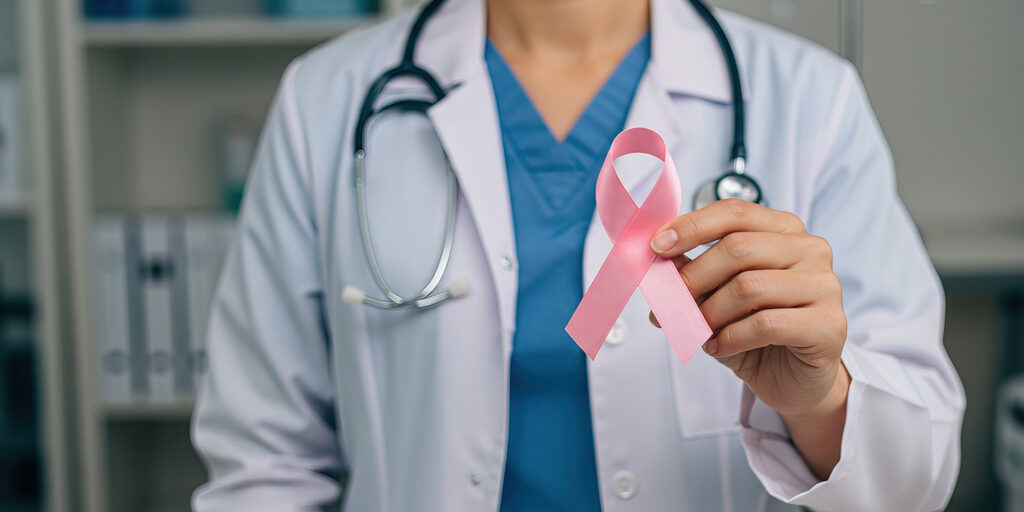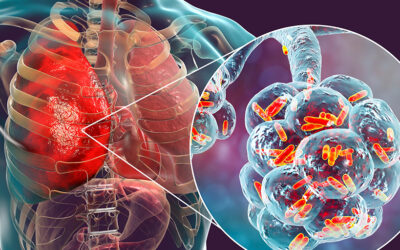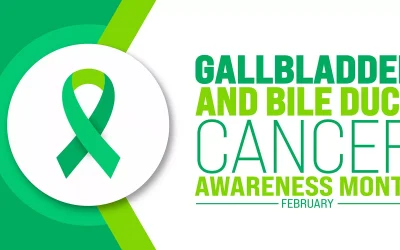What Does ‘Cancer is Curable if Detected in Early Stage’ Mean?

Hearing the word “cancer” often brings about fear in people, but it is important to remember that cancer does not always mean an untreatable disease. In many cases, if detected at an early stage, cancer can be treated successfully and people can go on to live long, healthy lives. Early diagnosis gives doctors the chance to act before the disease spreads, making treatments less complicated and outcomes far better. In this article, we’ll explain what cancer is, why early detection is so crucial, how it develops in the body, and the steps that can be taken through screening, prevention, and treatment to improve survival and quality of life.
Table of Contents
ToggleWhat is Cancer?
Cancer is a condition in which the body’s cells begin to grow and divide in an abnormal, uncontrolled way. Instead of following the body’s natural cycle of growth, repair, and death, cancer cells continue multiplying, eventually forming a mass known as a tumour. Some tumours remain localised and can be treated easily, while others spread to nearby tissues or even to distant parts of the body through the blood or lymphatic system.
There are many types of cancer, such as breast, lung, cervical, colorectal, prostate, and blood cancers, each behaving differently and requiring specific treatment approaches. The chances of cure depend not only on the type but also on the stage at which it is detected.
Why Does Early Detection of Cancer Matter?
Detecting cancer at an early stage can change the course of treatment and survival. When cancer is identified before it spreads, the chances of achieving a cure are significantly higher. For instance, the stage 1 cancer survival rate for many types of cancer is far greater compared to advanced stages, where treatment becomes more complex and outcomes less certain.
Early diagnosis also means that treatment can often be less aggressive, recovery is faster, and side effects are fewer. It reduces the physical, emotional, and financial strain on patients and their families. Most importantly, it gives people the opportunity to continue living healthy, fulfilling lives.
Difference Between Early- and Advanced-Stage Cancer
The stage of cancer describes how much the disease has grown and whether it has spread. Early-stage cancerusually means the abnormal cells are confined to one area and have not spread to nearby tissues or organs. At this point, treatment is often simpler, and the chance of cure is very high.
In contrast, advanced-stage cancer refers to disease that has spread either to surrounding tissues or to distant organs, a process called metastasis. At this stage, treatment may involve multiple therapies, the side effects are often greater, and the possibility of a complete cure is lower.
Recognising the difference between these stages helps patients understand why routine screening and early detection are so important and it allows doctors to act before cancer becomes harder to control.
How Does Cancer Progress in the Body?
Cancer does not develop overnight. It is the result of a gradual process in which normal cells undergo changes and begin to behave abnormally. Understanding this progression helps explain why early detection can prevent the disease from advancing to dangerous stages.
Uncontrolled Cell Growth
Healthy cells follow a natural cycle of growth, division, and death. Cancer begins when genetic mutations cause cells to grow uncontrollably, ignoring the body’s normal signals to stop.
Invasion of Healthy Tissues
As cancer cells multiply, they can invade the nearby healthy tissues, interfering with the normal functioning of vital organs.
Metastasis (Spread to Distant Sites)
Over time, cancer cells may travel through the bloodstream or lymphatic system to distant parts of the body. This spread, known as metastasis, makes treatment more challenging.
Advanced and Metastatic Cancer
When cancer reaches advanced stages, it is often widespread and no longer limited to one area. At this point, treatment aims to control the disease, reduce symptoms, and improve quality of life rather than guarantee a cure.
Factors Influencing Progression
The speed and severity of cancer progression depend on factors such as the type of cancer, genetic makeup, lifestyle choices, immune system strength, and overall health.
Common Symptoms of Early-Stage Cancer
In its earliest stages, cancer may cause only subtle changes that are easy to overlook. Being aware of these signs can make a crucial difference in seeking timely medical help. Some common symptoms that may indicate early-stage cancer include:
- Unexplained lumps or swelling that do not go away with time.
- Sudden weight loss without any change in diet or lifestyle.
- Persistent cough or voice changes that last for weeks.
- Changes in skin or moles, such as new growths, darkening, or irregular borders.
- Abnormal bleeding or discharge, for example between menstrual cycles or in urine or stool.
These symptoms do not always mean cancer, but they should never be ignored. Prompt evaluation through medical consultation and tests can help rule out or confirm a diagnosis at the earliest stage possible.
Which Cancer Screening Tests Help Detect Cancer Early?
Cancer screening plays a vital role in detecting the disease before symptoms appear. Different tests are recommended depending on the type of cancer and individual risk factors. Some of the most common screening methods include:
Mammogram (Breast Cancer)
An X-ray of the breast that can detect tumours too small to be felt by touch, improving survival rates in women with early breast cancer.
Colorectal Cancer Screening
Tests such as colonoscopy and stool-based screening can help identify polyps or growths in the colon before they turn cancerous.
Cervical Cancer Screening
Pap smears and HPV testing detect abnormal cervical cells at a pre-cancerous stage, allowing early treatment.
Lung Cancer Screening
Low-dose CT (LDCT) scans are recommended for high-risk individuals, such as long-term smokers, to detect lung cancer at its earliest stages.
Multi-Cancer Early Detection (MCED) Tests
These newer blood-based tests aim to identify multiple types of cancer before symptoms appear, though research and clinical trials are still ongoing.
Other Screenings
Depending on age, family history, or risk profile, doctors may recommend additional screenings for prostate, oral, ovarian, or liver cancers.
Who Should Get Regular Cancer Screenings and How Often?
Cancer screening is not the same for everyone. The need and frequency depend on age, personal health, family history, and exposure to risk factors.
- Age-based screening: Adults above 40 are often advised to undergo regular health check-ups that include common cancer screenings such as mammograms, Pap smears, or colonoscopies, depending on gender and risk.
- High-risk groups: Individuals with a family history of cancer, genetic mutations, or lifestyle risks such as smoking, heavy alcohol use, or obesity should be screened earlier and more frequently.
- Preventive health check-ups: Annual or bi-annual preventive packages offered by hospitals can help in detecting cancers and other diseases at an early stage.
A doctor or oncology specialist is best placed to recommend how often screenings should be done, ensuring they are tailored to personal risk profiles and medical history.
The Benefits of Early Cancer Diagnosis
Identifying cancer in its early stages brings several advantages that can make treatment more effective and less burdensome:
Higher Treatment Success Rates
When cancer is detected before it spreads, therapies are more likely to achieve complete remission and long-term survival.
Less Aggressive Therapies Required
Early-stage cancers can often be treated with surgery or localised therapies, avoiding the need for stronger treatments such as high-dose chemotherapy.
Lower Treatment Costs
Treating cancer early generally requires fewer resources and shorter hospital stays, reducing the financial strain on families.
Better Quality of Life
Patients diagnosed early often experience fewer side effects, faster recovery, and the opportunity to maintain their daily routines and overall wellbeing.
Treatment Options for Early-Stage Cancer
When cancer is found early, doctors have a wider range of effective treatment choices. The goal is often to remove or destroy the tumour completely before it spreads, offering the best chance of cure.
Surgery
In many cases, cancer surgery is the first step. Removing the tumour and a small margin of surrounding tissue can eliminate cancer entirely, especially when it has not spread.
Radiation Therapy
High-energy rays are used to target and destroy cancer cells. Radiation is often localised, reducing damage to nearby healthy tissues.
Targeted Therapy
These treatments act on specific genes or proteins involved in cancer growth. Because they are designed to target cancer cells, they generally cause fewer side effects compared to standard chemotherapy.
Immunotherapy
This approach strengthens the body’s immune system to recognise and attack cancer cells more effectively, showing promising results in several early-stage cancers.
The treatment plan depends on the type of cancer, its stage, and the patient’s overall health, and is best decided in consultation with an oncology specialist.
Lifestyle Changes to Support Cancer Prevention and Early Detection
While not all cancers can be prevented, adopting healthy habits can lower the risk and support early detection. Small but consistent lifestyle changes go a long way in protecting long-term health.
Focus on plant-based foods
A diet rich in fruits, vegetables, whole grains, and dietary fibre provides essential nutrients and antioxidants that help protect cells from damage.
Limit processed and red meats
High consumption of processed foods and red meat has been linked with increased cancer risk, particularly colorectal cancer.
Maintain a healthy weight
Obesity is a known risk factor for several cancers. Balanced nutrition combined with portion control helps reduce this risk.
Stay physically active
Regular exercise improves immunity, supports healthy weight, and reduces inflammation, all of which play a role in cancer prevention.
Quit smoking and alcohol
Tobacco and excessive alcohol use are leading causes of many cancers, including lung, throat, and liver cancers. Stopping these habits significantly lowers risk.
Regular cancer screenings
Alongside lifestyle changes, keeping up with recommended cancer screenings ensures early detection and timely treatment.
When to Consult a Doctor Immediately?
While some symptoms may seem minor, they can signal the early presence of cancer or other serious conditions if they persist. Medical consultation should not be delayed if there are:
- Unexplained lumps or swelling that do not go away.
- Sudden or unexplained weight loss.
- Ongoing fatigue or weakness without clear reason.
- Persistent cough, hoarseness, or difficulty swallowing.
- Abnormal bleeding such as in urine, stool, or between menstrual cycles.
- Lasting changes in bowel or bladder habits.
If you live in Dehradun or nearby areas, seeking timely advice from an oncology specialist at Graphic Era Hospital in Dehradun can make the difference between early, successful treatment and delayed diagnosis. Even if symptoms turn out to be non-cancerous, getting them checked ensures peace of mind and safeguards health.
How Graphic Era Hospital Supports Early Cancer Detection and Treatment
At Graphic Era Hospital, the focus is on combining advanced technology with compassionate care to ensure cancers are detected and treated at the earliest possible stage.
Expert oncologists in Dehradun
A team of highly skilled oncology specialists offers personalised treatment plans based on the type and stage of cancer.
Advanced diagnostic facilities
From MRI, CT Scan, PET-CT, and biopsy services to preventive health check-ups, the hospital is equipped to provide accurate and timely cancer diagnosis.
Comprehensive treatment options
Patients have access to surgery, radiation, targeted therapy, and immunotherapy, supported by multidisciplinary care for better outcomes.
Patient-centred care
Beyond treatment, the hospital focuses on guidance, counselling, and long-term follow-up, ensuring that patients and families feel supported at every stage of their journey.
Winning the Battle Against Cancer Starts with Early Detection
Cancer is not always a hopeless diagnosis. When identified in its earliest stages, many forms of cancer can be treated successfully with high survival rates. Regular screenings, awareness of symptoms, and healthy lifestyle choices are powerful tools in prevention and timely diagnosis. At Graphic Era Hospital, patients benefit from advanced diagnostic technology, expert oncologists, and compassionate care that prioritises early detection and effective treatment. For cancer screening tests or to consult an oncology specialist in Dehradun, call 18008897351 and take the first step towards safeguarding health.
Frequently Asked Questions (FAQs)
Is cancer completely curable if detected early?
Yes, many cancers can be cured if diagnosed in the early stages before they spread. The chances of complete remission are highest at stage 1.
What is the survival rate of stage 1 cancer?
The survival rate varies by type of cancer, but stage 1 generally has a high cure rate. For example, breast and cervical cancers have survival rates above 90% when treated early.
Which cancers are easiest to treat if found early?
Breast, cervical, prostate, and colorectal cancers respond well to treatment when detected at an early stage.
Are cancer screening tests safe?
Yes, most screening tests such as mammograms, Pap smears, colonoscopies, and CT scans are safe and recommended at intervals based on age and risk factors.
Can blood tests detect all types of cancer?
No, blood tests alone cannot detect every cancer. They are often combined with imaging or biopsy for accurate diagnosis.
What is the role of PET-CT in cancer detection?
PET-CT scans help detect cancer spread, identify recurrence, and guide treatment planning with high precision.
Can genetic testing predict my cancer risk?
Genetic testing can show whether a person carries mutations that increase cancer risk, helping doctors recommend preventive measures or early screening.
Does early detection mean fewer side effects from treatment?
Yes, early treatment often requires less aggressive therapies, leading to fewer side effects and better quality of life.
Where can I get cancer screening tests near me?
Cancer screening services are available at major hospitals including Graphic Era Hospital, Dehradun, which offers advanced diagnostic facilities.
What advanced technology does Graphic Era Hospital use for early cancer diagnosis?
The hospital uses advanced tools such as MRI, CT scan, PET-CT, and biopsy techniques to ensure accurate detection and timely treatment.
By Specialities
- Bariatric Surgery
- Cancer Care
- Cardiology
- Dental
- Dermatology
- Diabetes & Endocrinology
- Endocrinology and Diabetes
- ENT (Ear Nose Throat)
- Eye Care
- Gastroenterology
- Haematology
- Health Awareness
- Health Care
- Health Tips
- Hematology
- Hepatology
- Internal Medicine
- Mental Health and Behavioural Sciences
- Metabolic
- Neonatology
- Nephrology
- Neurology
- Nutrition & Dietetics
- Obstetrics & Gynaecology
- Oncology
- Ophthalmology
- Orthopaedics
- Paediatric
- Physiotherapy & Rehabilitation
- Plastic and Reconstructive Surgery
- Psychology
- Pulmonology
- Rheumatology
- Spine
- Urology
Recent Posts
- A Complete Guide to Blood Clots in the Brain
- Heart Attack: Symptoms and Treatment
- World Obesity Day 2026: Understanding, Preventing, and Managing Obesity
- Bacterial and Viral Pneumonia: Causes, Symptoms, and Treatment Options
- World Hearing Day 2026: Empower Yourself to Protect and Improve Your Hearing
Need expert medical advice?
Share your details and our healthcare specialists will reach out to assist you.
By proceeding, you acknowledge and agree to our Privacy Policy, Terms of Use, and Disclaimer.



















